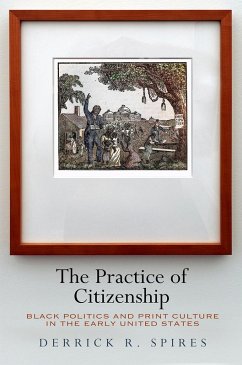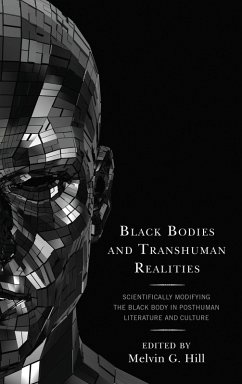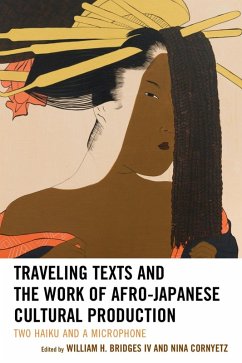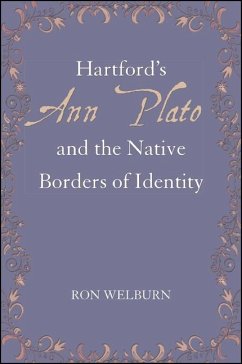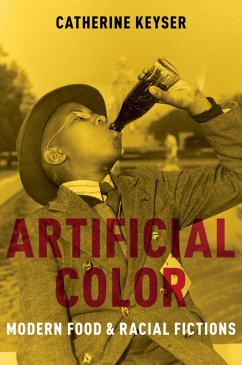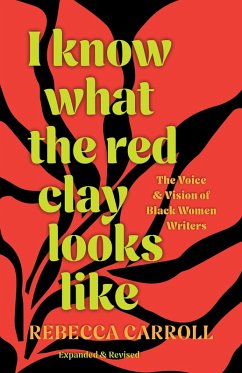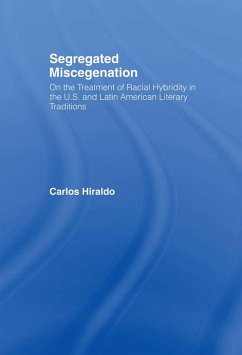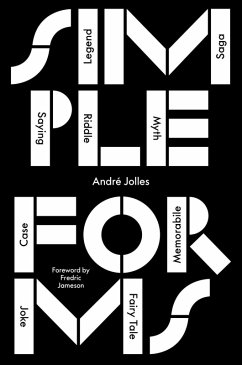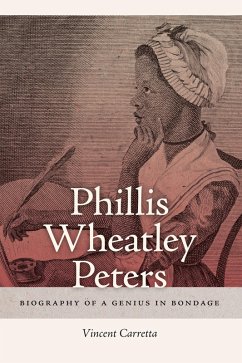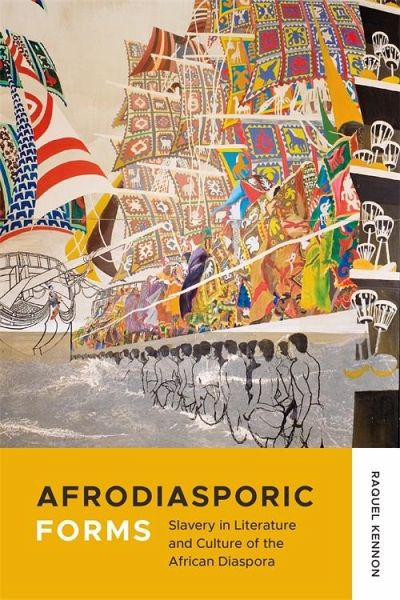
Afrodiasporic Forms (eBook, ePUB)
Slavery in Literature and Culture of the African Diaspora
Versandkostenfrei!
Sofort per Download lieferbar
29,95 €
inkl. MwSt.
Weitere Ausgaben:

PAYBACK Punkte
15 °P sammeln!
Afrodiasporic Forms explores the epistemological possibilities of the "Black world" paradigm and traces a literary and cultural cartography of the monde noir and its constitutive African diasporas across multiple poetic, visual, and cultural permutations. Examining the transatlantic slave trade and modern racial slavery, Raquel Kennon challenges the US-centric focus of slavery studies and draws on a transnational, eclectic archive of materials from Lusophone, Hispanophone, and Anglophone sources in the Americas to inspect evolving, multitudinous, and disparate forms of Afrodiasporic cultural e...
Afrodiasporic Forms explores the epistemological possibilities of the "Black world" paradigm and traces a literary and cultural cartography of the monde noir and its constitutive African diasporas across multiple poetic, visual, and cultural permutations. Examining the transatlantic slave trade and modern racial slavery, Raquel Kennon challenges the US-centric focus of slavery studies and draws on a transnational, eclectic archive of materials from Lusophone, Hispanophone, and Anglophone sources in the Americas to inspect evolving, multitudinous, and disparate forms of Afrodiasporic cultural expression.
Spanning the 1830s to the twenty-first century, Afrodiasporic Forms traverses national, linguistic, and disciplinary boundaries as it investigates how cultural products of slavery's afterlife-including poetry, prose, painting, television, sculpture, and song-shape understandings of the African diaspora. Each chapter uncovers multidirectional pathways for exploring representations of slavery, considering works such as a Brazilian telenovela based on Bernardo Guimarães's novel A Escrava Isaura, Robert Hayden's poem "Middle Passage," Kara Walker's sculpture A Subtlety, and Juan Francisco Manzano's Autobiografía de un esclavo. Kennon's expansive method of comparative reading across the diaspora uses eclectic pairings of canonical and popular textual and artistic sources to stretch beyond disciplinary and national borders, promoting expansive diasporic literacies.
Spanning the 1830s to the twenty-first century, Afrodiasporic Forms traverses national, linguistic, and disciplinary boundaries as it investigates how cultural products of slavery's afterlife-including poetry, prose, painting, television, sculpture, and song-shape understandings of the African diaspora. Each chapter uncovers multidirectional pathways for exploring representations of slavery, considering works such as a Brazilian telenovela based on Bernardo Guimarães's novel A Escrava Isaura, Robert Hayden's poem "Middle Passage," Kara Walker's sculpture A Subtlety, and Juan Francisco Manzano's Autobiografía de un esclavo. Kennon's expansive method of comparative reading across the diaspora uses eclectic pairings of canonical and popular textual and artistic sources to stretch beyond disciplinary and national borders, promoting expansive diasporic literacies.
Dieser Download kann aus rechtlichen Gründen nur mit Rechnungsadresse in A, D ausgeliefert werden.




